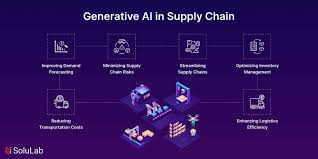Contract logistics and fleet services play a critical role in supply chain management. As businesses expand globally, efficient logistics and transportation solutions become vital. Whether it’s inventory management, warehousing, or transportation, these services ensure seamless operations. But what exactly are Contract Logistics and fleet services, and why do they matter? Let’s dive in.
What is Contract Logistics?
Definition and Importance
Contract logistics refers to outsourcing supply chain operations to third-party providers. These providers handle transportation, warehousing, distribution, and inventory management. The goal is to improve efficiency and reduce costs for businesses.
Key Components of Contract Logistics
1. Warehousing
Warehousing is a crucial part of contract logistics. It ensures products are stored safely before reaching customers.
2. Inventory Management
Efficient inventory management prevents overstocking and stockouts. Advanced tracking systems help businesses maintain optimal inventory levels.
3. Order Fulfillment
From receiving orders to shipping them, contract logistics providers streamline the fulfillment process.
4. Distribution
Strategic distribution networks ensure timely delivery of goods to various locations, reducing transit time and costs.
Benefits of Contract Logistics
1. Cost Efficiency
Outsourcing logistics saves businesses from investing in infrastructure and technology.
2. Scalability
Contract logistics providers adapt to business growth, ensuring smooth operations during peak seasons.
3. Technology Integration
Advanced software, AI, and automation enhance supply chain efficiency.
Understanding Fleet Services
Definition and Importance
Fleet services involve managing a group of vehicles used for business operations. These services ensure efficient transportation, vehicle maintenance, and regulatory compliance.
Types of Fleet Services
1. Commercial Fleets
Used by businesses for product deliveries and services, these fleet services include trucks, vans, and cars.
2. Specialized Fleets
Industries like healthcare and construction use specialized fleets for unique needs.
3. Rental and Leasing
Businesses often rent or lease vehicles instead of owning them, reducing operational costs.
Role of Fleet Services in Supply Chain Management
Fleet services optimize logistics by ensuring timely deliveries, route efficiency, and vehicle maintenance. They play a significant role in cost control and operational productivity.
Contract Logistics vs. Traditional Logistics
Key Differences and Advantages
- Contract Logistics: Outsourced, cost-effective, and technology-driven.
- Traditional Logistics: Managed in-house, requires significant investment, and limited scalability.
How Fleet Services Enhance Contract Logistics
1. Efficiency
Fleet management ensures optimized routes and timely deliveries, reducing delays.
2. Route Optimization
AI-driven route planning reduces fuel costs and improves delivery speed.
3. Safety Measures
Regular vehicle maintenance and driver monitoring ensure road safety.
Technology in Contract Logistics and Fleet Services
1. AI and Automation
Artificial intelligence improves demand forecasting and warehouse management.
2. IoT and GPS Tracking
Real-time tracking enhances fleet management and logistics transparency.
Challenges in Contract Logistics and Fleet Services
1. Rising Costs
Fuel prices and operational costs impact logistics budgets.
2. Regulatory Compliance
Adhering to transportation laws and safety regulations is crucial.
3. Environmental Concerns
Sustainability efforts require businesses to adopt eco-friendly logistics practices.
Solutions to Common Challenges
1. Automation
Using AI-driven solutions minimizes manual errors and enhances productivity.
2. Sustainable Practices
Electric vehicles and optimized delivery routes reduce carbon footprints.
3. Data Analytics
Predictive analytics improve fleet efficiency and cost management.
Choosing the Right Contract Logistics and Fleet Services Provider
Key Considerations
- Experience and reliability
- Technology integration
- Cost-effectiveness
- Customer support
Future Trends in Contract Logistics and Fleet Services
1. Sustainability
Green logistics solutions are gaining popularity.
2. Automation
AI-driven solutions are revolutionizing the logistics sector.
3. AI Integration
Machine learning enhances supply chain decision-making.
Conclusion
Contract logistics and fleet services are essential for modern businesses. By outsourcing logistics and optimizing fleet management, companies can reduce costs, improve efficiency, and stay competitive. As technology evolves, adopting AI and sustainable practices will further enhance logistics operations.
FAQs
1. What industries benefit from contract logistics?
Industries like retail, e-commerce, healthcare, and manufacturing benefit the most from contract logistics.
2. How does fleet management improve efficiency?
Fleet management optimizes routes, tracks vehicles in real-time, and ensures timely maintenance.
3. Is contract logistics cost-effective for small businesses?
Yes, outsourcing logistics helps small businesses save on infrastructure and operational costs.
4. What role does AI play in logistics?
AI enhances demand forecasting, route optimization, and warehouse management.
5. How can businesses make their logistics more sustainable?
Using electric vehicles, optimizing routes, and reducing waste are key steps toward sustainable logistics.



